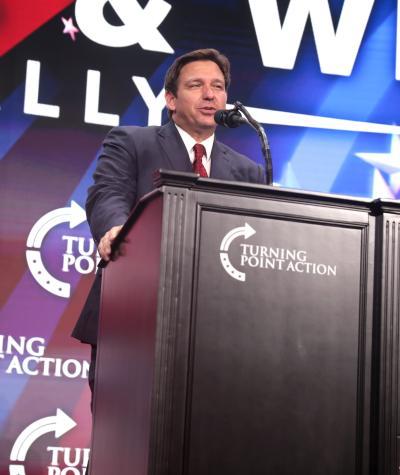Federal candidates cannot raise or spend money outside of federal campaign finance rules to support their campaign. This “soft money” ban applies to money raised through a state PAC, as states and municipalities have vastly different rules from the Federal Election Campaign Act (FECA) regarding what sources an entity or campaign can raise money from and the amounts they can raise from those sources. Some states have no cap at all on the amount a donor can give, and some allow corporate contributions.
The Bipartisan Campaign Reform Act of 2002 (BCRA), which is sometimes called “McCain-Feingold,” bars federal candidates from raising or spending “soft money” – funds raised in circumstances where federal campaign finance laws don’t apply.
Without this “soft money” ban, a federal candidate could use a state PAC to raise multimillion-dollar contributions to support their campaign from a billionaire or corporate interest, notwithstanding the federal contribution limit for candidates (currently $3,300 per election), the total ban on corporate contributions to federal candidates, and the requirement that all federal contributions be disclosed in reports filed with the FEC.
Yet despite BCRA now being over twenty years old, federal candidates still attempt to circumvent these rules, allowing “soft money” to flow into federal elections and the influence of wealthy special interests to increase.
For example, Florida Governor and presidential candidate Ron DeSantis’s state PAC, “Friends of Ron DeSantis,” reportedly transferred over $80 million of soft money to “Never Back Down,” a federal super PAC that plans to spend over $200 million supporting DeSantis’s campaign for the White House. This transfer blatantly violates the ban on “soft money” – since the money that Friends of Ron DeSantis has raised is not subject to federal contribution limits, source prohibitions, and reporting requirements.
By all available evidence, Ron DeSantis became a candidate for president by March 10, 2023, by which point he had privately described his presidential campaign plans to allies, and, within weeks, had plotted out a strategy to run against Donald Trump and had been actively raising funds in extraordinary amounts that he would only need for a nationwide campaign. Under federal law, one becomes a federal candidate after deciding to run for federal office and raising or spending more than $5,000 for that purpose.
These activities have prompted Campaign Legal Center (CLC) to file a complaint with the Federal Election Commission (FEC), calling for an investigation into whether Governor DeSantis and his state PAC violated the law in making this $80 million transfer.
Soft money undermines federal campaign finance laws because it is, by definition, money raised and spent outside the scope of those laws. In order to give voters real power and prevent wealthy special interests from rigging the system in their favor, the FEC must act and hold those responsible accountable.

